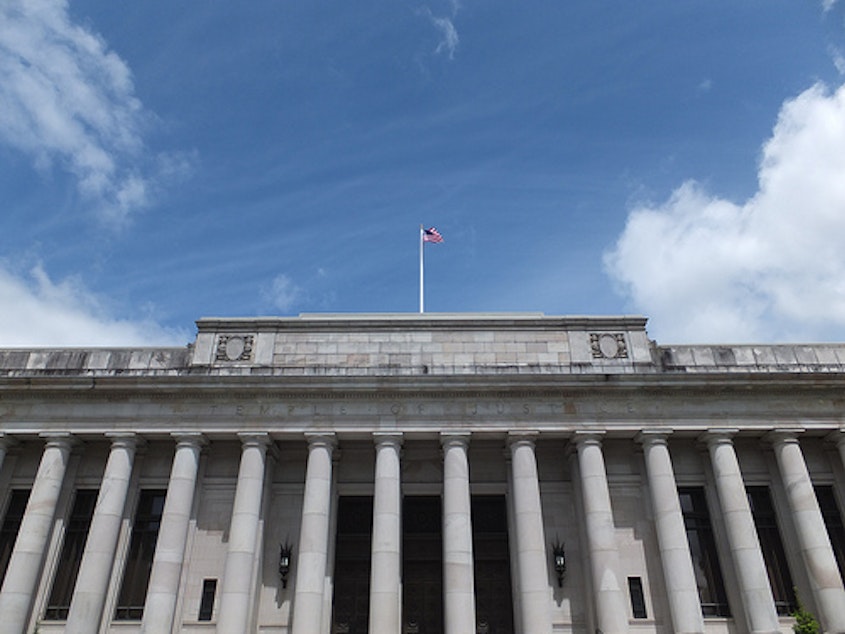Corporations Are People Too In Identity Theft Law

The Supreme Court of Washington ruled Thursday that a corporation can be a victim of identity theft just like a person can under state law. The law makes it a felony to steal the identity of a “person, living or dead.”
A different state law says a corporation can be considered a person where it’s relevant. The high court decided corporate personhood applies in the case of Derrick Robert Evans’ theft of $500 from Allube Inc. in Grays Harbor County.
Evans’ attorney Carol Elewski acknowledged in a court brief that her client found a blank payroll check at Allube, forged a signature, cashed the check at a Rent-A-Center and pocketed $480. Grays Harbor County charged Evans with identity theft and he was convicted after a bench trial. Evans appealed his conviction to the state Supreme Court.
In oral arguments Elewski told the high court that her client could have been charged with forgery or theft, but not identity theft. She argued that the phrase “living or dead” means the law refers to a natural person or is at least vague enough to be unconstitutional.
The only justice who agreed was Charles Wiggins. He wrote in his dissent that the phrase “person, living or dead” expresses the legislature’s intent to exclude corporations. Wiggins wrote that the law is at least vague enough that, under criminal law, it should be interpreted in favor of the defendant and the conviction should be vacated.
Sponsored
But in writing for the majority, Justice Steven Gonzalez said the legislature is free to define the word “person” to include corporations where it’s relevant, and that the development of the state’s identity theft law demonstrates the legislature’s intent to include corporations as possible victims. He also rejected the notion that the law is unconstitutionally vague, saying that it gives fair warning that Evans’ actions were subject to prosecution.
Evans was sentenced at trial to six months in jail and one year of probation.

